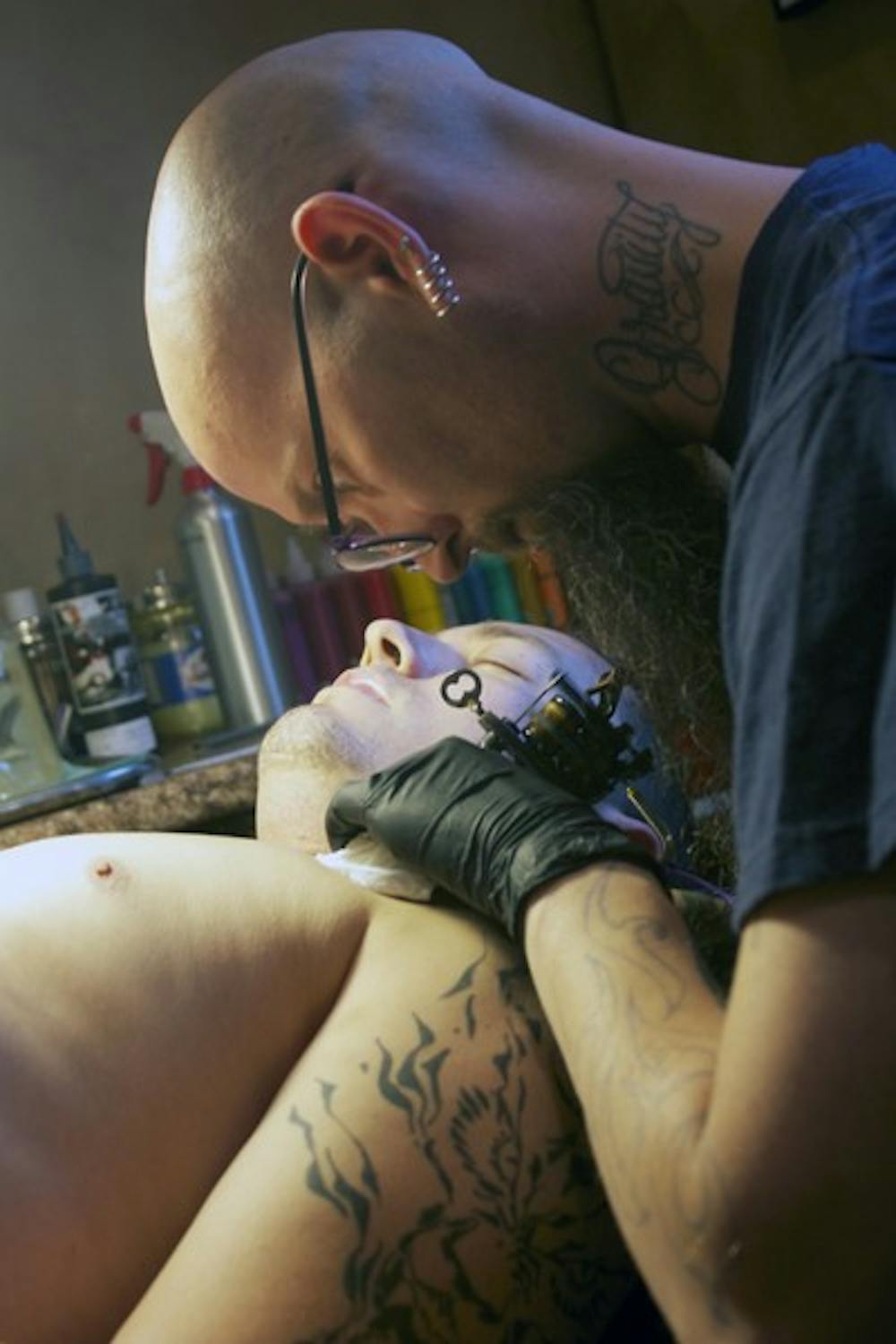An ongoing legal challenge involving a French couple’s attempt to open a tattoo parlor in Mesa has sparked a debate concerning freedom of expression and how body art is protected by the First Amendment.
In March 2009, the Mesa City Council denied Ryan and Laetitia Coleman of Nice, France, an operating permit to open up a business, Angel Tattoo, on the corner of Dobson and Baseline roads.
Some city residents responded negatively to the proposed business, believing the parlor would increase gang activity or decrease the value of property nearby.
The Colemans argued the city violated one of their First Amendment rights: freedom of expression.
Journalism professor Joseph Russomanno, an expert on First Amendment court cases, said having a tattoo as well as operating a shop is certainly a form of expression and should be protected by the U.S. Constitution.
“If you accept the notion that having a tattoo is a form of expression … then it might be argued, logically, (that) an establishment that provides that service and provides that ability for individuals to express themselves should also be protected,” Russomano said.
The couple filed a lawsuit against Mesa in April 2010, but the Maricopa County Superior Court did not rule in their favor. The couple appealed.
A state appeals court heard arguments for the case on Sept. 15 and a final ruling is still pending.
Mark Walters, owner of the Tempe business Living Canvas Tattoos, heavily supports a tattoo artist’s expressional rights but argues shops in the Valley should be regulated.
“This is a non-regulated industry in Arizona so there has to be a cutoff point about what the freedom of expression is,” Walters said. “And if the state or the city doesn’t want to allow a tattoo shop they should have that right to not allow it for whatever reason they see fit.”
Walters’ Tempe business has been open for 15 years but before he could get an operating permit from the city, he had to jump through many hoops.
Walters ran into problems while opening his shop due to the stigma most people had at the time with tattoos and how it was considered taboo.
“It’s totally evolved from that now,” Walters said. “Fortunately we’ve evolved, a lot of people’s perceptions haven’t. People will always stick you in that category, it’s unfortunate, but it’s true.”
Walters said he had supporters in Tempe and residents in the neighborhood behind the shop to vouch for him and prove through his former shop, Sin City, that he knew how to run an up-to-code establishment.
Walters said the biggest part of getting approved for an operating permit was representing himself professionally and treating the process like any other business.
“It’s a legitimate business, that’s just the way it is,” Walters said. “Everybody has their misconceptions about it and they look down on it and what not, but the reality of it is it’s a f---ing business and you got to run it like a business.”
Third year law student Sarah Giles said tattoos in general are definitely a form of expression but a tattoo shop is more of a business and the couple in Mesa would have a better chance going with an alternative approach.
“I think you might have a better argument saying that the city is infringing on their right to operate a business and to make money and support their families,” Giles said.
Last year the United States Court of Appeals for the Ninth Circuit ruled in favor of a man who sued the city of Hermosa Beach, Calif., after the city turned down his proposal to open a tattoo shop. The city had previously banned tattoo parlors.
The man filed a lawsuit against the city, arguing Hermosa Beach had violated his First Amendment right.
“The entire purpose of tattooing is to produce the tattoo, and the tattoo cannot be created without the tattooing process any more than the Declaration of Independence could have been created without a goose quill, foolscap and ink,” according to the Ninth Circuit’s ruling.
Reach the reporter at sraymund@asu.edu
Click here to subscribe to the daily State Press newsletter.





